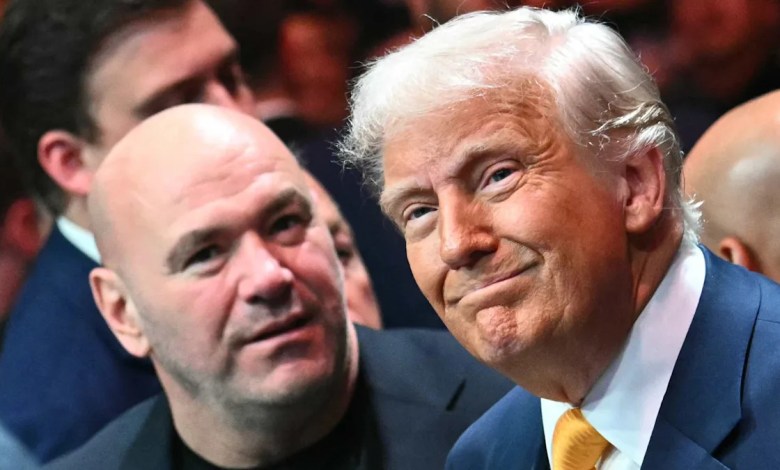New bill introduced into Congress would allow TKO to create UFC structure in boxing

Dana White’s biggest play in boxing yet is starting to take shape.
UFC CEO White, who founded TKO Boxing alongside Saudi Arabian boxing financier Turki Alalshikh and WWE President Nick Khan, will promote the Sept. 13 battle of pound-for-pound greats between Saul “Canelo” Alvarez and Terence “Bud” Crawford — but a move perhaps more important for TKO in the long run was presented in the United States Congress on Wednesday.
Advertisement
A new bipartisan bill, the Muhammad Ali American Boxing Revival Act, has been introduced by two members of Congress — Georgia Republication Brian Jack and Kansas Democrat (and former MMA fighter) Sharice Davids — to amend the Professional Boxing Safety Act. The bill would allow for the creation of alternative systems called Unified Boxing Organizations (UBOs).
At the present time, boxing operates within a four-belt system whereby boxers work their way up through the rankings of the sport’s four major sanctioning bodies — the WBA, WBC, WBO and IBF — until they can eventually fight for a world title with one of them. UBOs would not replace the current structure of boxing; it would instead create a separate, parallel system that runs alongside it, offering boxers the choice between the traditional sanctioning body model or the UBO model.
UBOs would be allowed to run rankings systems, award UBO titles and organize events. In essence, promoters would be able to promote fights for titles and rankings, which they also control — a stark contrast to how the pugilistic art is currently run.
The biggest benefactor of these changes is, without a doubt, TKO Boxing. With the bill’s passing, TKO Boxing would be allowed to form a UBO of its own and operate a UFC-type “league” model within it.
Advertisement
The sport of boxing has long been criticized for having too many belts, making it difficult for fans to be aware of who the best in the division is or what the universal rankings for those divisions actually look like. Furthermore, sanctioning bodies have a clear conflict of interest, as they charge a percentage fee for championship matches and therefore benefit from the most popular fighters being successful within their system, or from extra, unnecessary titles — such as regular, gold, and franchise titles — being created and used on a regular basis.
UBOs, however, would not be allowed to charge boxers any fees for placement in the rankings or the right to participate in championship matches.
Additionally, the bill sets to enact a national minimum payment for all professional boxers at $150 per round. While this appears insignificant, six states have minimums below $150, and most states have no minimum payments at all. This rule would help prevent up-and-coming fighters from being exploited, as it is common knowledge that fighters on club shows sometimes pay to fight or fight for no money.
The legislation, if it passes, would also create a national minimum of $25,000 for coverage for injuries sustained during a fight, higher than current minimums in 43 states.
Advertisement
UBO boxers would benefit from additional health and safety protections, including enhanced comprehensive medical exams, more licensed physicians and ambulance units present at each event, and health coverage for injuries sustained during training for a bout. UBOs would have comprehensive anti-doping testing programs and strict anti-betting policies.
This legislation is endorsed by the Association of Boxing Commissions and Lonnie Ali, wife of the late boxing legend Muhammad Ali.
Source link






